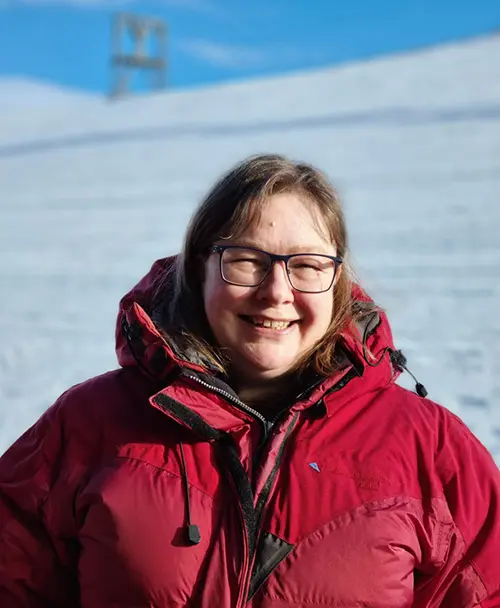AE-842 Arctic Energy Meteorology (10 ECTS)
ID:
AE-842
CREDITS:
10 ECTS
APPLICATION DEADLINE:
March 01, 2025
START DATE:
September 22, 2025
END DATE:
October 31, 2025
COURSE PERIOD:
Autumn semester. Teaching block 6

| Grade: | Letter grade (A through F) |
| Course Cost: | TBA |
| Course Capacity Min/Max: | 10/25 students |
| Credit reduction / overlap: | 10 ECTS with AE-342 |
| Language of instruction: | English |
| Examination support material: | Bilingual dictionary between English and mother tongue |
Course requirements
Enrolment in a relevant PhD programme.
Academic content
The course is intended for students with interests and background in Meteorology, Environmental/Energy engineering, Applied mathematics, Applied physics, Mechanics, Structural engineering (dynamics), or a related subject directly relevant. Renewable energy is a prioritised theme in Svalbard and globally due to the goal to reduce the current dependency on fossil fuels. Several Svalbard companies are shifting to more environmentally friendly alternatives, including wind and solar energy. This poses unique logistical and technical challenges due to the extreme Arctic environment. Of particular importance are the distinct meteorological conditions in a cold climate and how they affect the energy potential and installations. The understanding of these processes is much poorer than at lower latitudes; for example, the influence of the strong stable atmospheric boundary layer, influence of terrain induced phenomena, and icing processes.
Specific topics:
- Introduction to renewable energy systems in the Arctic
- Solar radiation and the energy budget
- Cloudiness and fog
- Snow drift
- Local wind systems
- Icing
- Turbulence
- Sound propagation
- Off-shore meteorology
- The use of measurements, forecasting and re-analyses to determine the energy potential
Learning outcomes
Upon completing the course, the students will be able to:
Knowledge
- know and have a physical understanding of which meteorological processes are most important for renewable energy production in the Arctic
- be on the forefront of what makes renewable energy production in the Arctic unique
- can contribute to the knowledge on how measurements, forecasting and re-analysis can be used to determine the potential of solar and wind energy
Skills
- give an estimation of the energy potential from different sources and determine the uncertainties as well as formulating new research questions.
- carry out research of international standard on the meteorological processes that will affect production of solar and wind energy at a specific site
General competences
- perform field experiments operations, collect data using scientific instruments, and process data
- communicate research results orally and in writing
- read and critically discuss scientific literature
- be prepared at a PhD level, for future positions within research on renewable energy in the Arctic research, or the industry
- facilitate group work in the field and lead the project report work, based on training received and experience gained during the fieldwork
Learning activities
The course extends over 5-6 weeks including compulsory safety training, and will run in combination with AE-342.
The lectures outline the theoretical aspects of meteorological processes important for renewable energy, especially solar and wind energy, while the field excursions and field work will give hands-on experience of Arctic weather possibilities and constraints. Scientific literature and results from project works will be discussed in seminars.
Summary
- Total lecture hours: 35 hours
- Total seminar hours: 10 hours
- Total exercise hours: 10 hours
- Field work: 40 hours
- Report writing: 95 hours
- Self-studies: 110 hours
Compulsory learning activities
- Safety training
- Seminars
- Assignments
- Fieldwork
- Presentations
All compulsory learning activities must be approved in order to sit the exam.
Assessment
| Method | Duration | Percentage of final grade |
| Group project report (written and oral) | 25% | |
| Oral exam | 75% |
All assessments must be passed in order to pass the course.
Each assessment is graded and subsequently combined into a single grade. Partial grades for each assessment will be available.
